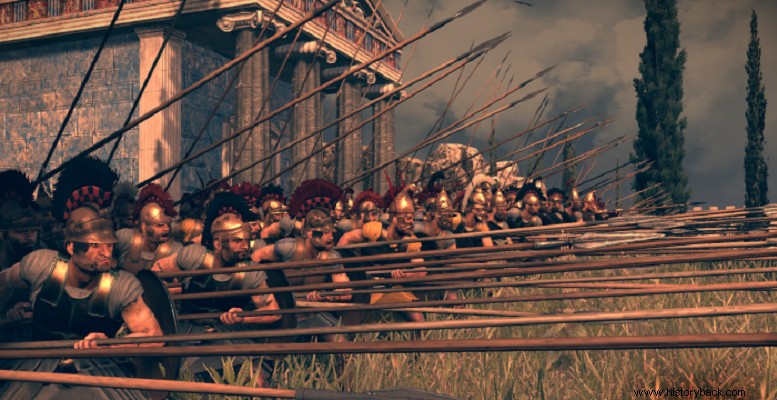
The Lamia War (323 – 322 BC) broke out immediately after the death of Alexander the Great. It was an attempt by the regionalist forces of Greece against the universal Hellenism imposed by the Macedonian soldier. Lost in their political expediencies and micro-calculations, the Athenians, first of all, took the lead in forming a new anti-Macedonian coalition now that the fear of Alexander was fading.
The new civil war was called Lamia because its main theater of operations was around the city of Lamia. The battle of Thermopylae in 323 BC. it was an episode of that war. The operations began with an attack and victory of the Athenians against the Boeotian allies of the Macedonians at Plataea.
The custodian of the Macedonian throne general Antipatros he was informed of the war preparations of the Athenians and their allies and after first asking for help from general Crateros who was in Asia, moved at the head of 13,000 infantry and 600 cavalry against the opposing army led by the Athenian general Leosthenes .
Antipater also counted on the support of the Thessalians, who until then had been allies of the Macedonians. The Thessalians, however, had now sided with the Athenians. Athenians, Thessalians, Aetolians and other allies lined up at the historic strait of Thermopylae in order to block Antipater's descent to the South.
The allied army was at least twice as large as the Macedonian one and Antipater was fatally defeated. However, he managed to retreat and shut himself up in the fortress of Lamia, where he was besieged by the opponents. Despite their initial success, however, the operations ended as the allies failed to capture Lamia and were limited to besieging it.
In one of the Macedonians' exodus, the general Leosthenes was actually killed. His death led to the lifting of the siege of Lamia and the effective disintegration of the alliance. Antiphilus who succeeded him was not recognized as a leader equal to him.
In the meantime 20,000 infantry and 1,500 cavalry led by Leonnatus arrived from Asia and reinforced Antipater. Strengthened in this way, Antipater launched a counterattack, taking advantage of the Macedonian fleet's victory over the Athenian fleet at Amorgos.
Having secured control of the sea, the Macedonians brought new forces from Asia. The allies managed to defeat Leonnatus' body - he also fell in the battle - but their position did not improve as with the arrival of Crateros and his men the Macedonians found themselves numerically superior.
Finally the opposing armies met at Krannona in Thessaly. Antiphilus fielded 25,000 infantry and 3,500 cavalry – of which about 2,000 were elite Thessalians – against at least 43,000 Macedonian infantry and 5-6,500 cavalry (sources do not agree).
The battle began with an advance of the Thessalian cavalry under Menon of Pharsalios. While the opposing horsemen were engaged, the Macedonian phalanxes rushed out, forcing the opposite footmen to retreat. Although the allied army was not broken the battle was lost. Losses were small – 130 Macedonian dead, 500 allied dead.
However the battle of Krannona proved that Macedonian power could not be countered. So the allies asked for peace. The winners did not pressure the losers. However, they turned the government of Athens into an oligarchic one and prosecuted the instigators of the war, Hyperides and Demosthenes. The first was killed, and the second committed suicide.
